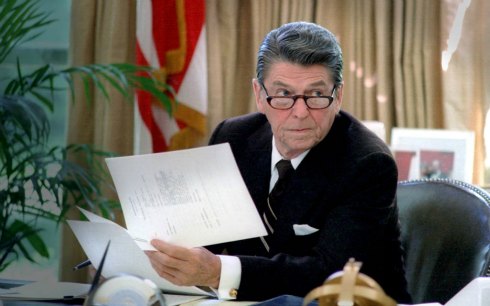
I could not believe that I was actually seeing what I was seeing. I had heard about Oliver Stone’s 10-part documentary regarding contemporary US history. I am not sure what I expected to see, but what I actually viewed was almost breathtaking. The documentary, titled the “Untold History of the United States,” is almost a visual version of Howard Zinn’s People’s History of the United States. As such it demystifies post-World War II U.S. history in a manner that I have not seen in the mainstream.
In mainstream settings we are taught about World War II and its aftermath as if it were a straight moral course taken by the USA. By way of example, consider the dropping of the atomic bombs on Japan in August 1945. Most mainstream sources in the USA insist, without question, that the use of the atomic bombs was essential to ending the war without massive US and Japanese casualties. Yet few mainstream sources point to the real fear that the Japanese High Command had: the entry of the Soviet Union into the war and its devastating impact on Japanese troops in Manchuria and Korea (and the possible invasion of Japan by Soviet troops).
Stone presents what can be called a “counter-narrative” through an in-depth investigation and use of archival footage leading the viewer to ask a very simple, yet profound question: Was the usage of the atomic bombs aimed at ending World War II or, in the alternative, putting the world on notice—and the Soviet Union in particular—of the power possessed by the USA?
As Stone proceeds, the story becomes more complicated, interesting and certainly eye-opening. The devastating impact of the domestic Cold War on progressive social movements is something with which we live to this day since, as Stone demonstrates, the Cold War anti-communism was not aimed at any alleged ‘communist menace’ but at forces at home that were attempting to deepen the reforms that had started with Franklin Roosevelt’s “New Deal.” In fact, the dominance of the super-rich, the so-called 1 percent, illuminated by the Occupy Movement, is in many ways the direct outgrowth of the blunting of movements for social justice first during the early Cold War, and then later in the 1970s and1980s; in the last case with a new and different form of repression.
Stone’s Untold History of the United States not only needs to be viewed, but more importantly, discussed. The one hour segments lend themselves to useful discussion, whether in a classroom setting or a living room setting.
Let’s start by spreading the word. This is one documentary that we cannot afford to have hushed up or brushed aside.
Bill Fletcher, Jr. is a Senior Scholar with the Institute for Policy Studies, the immediate past president of TransAfrica Forum, and the author of “They’re Bankrupting Us” – And Twenty Other Myths about Unions. He can be reached at papaq54@hotmail.com.
